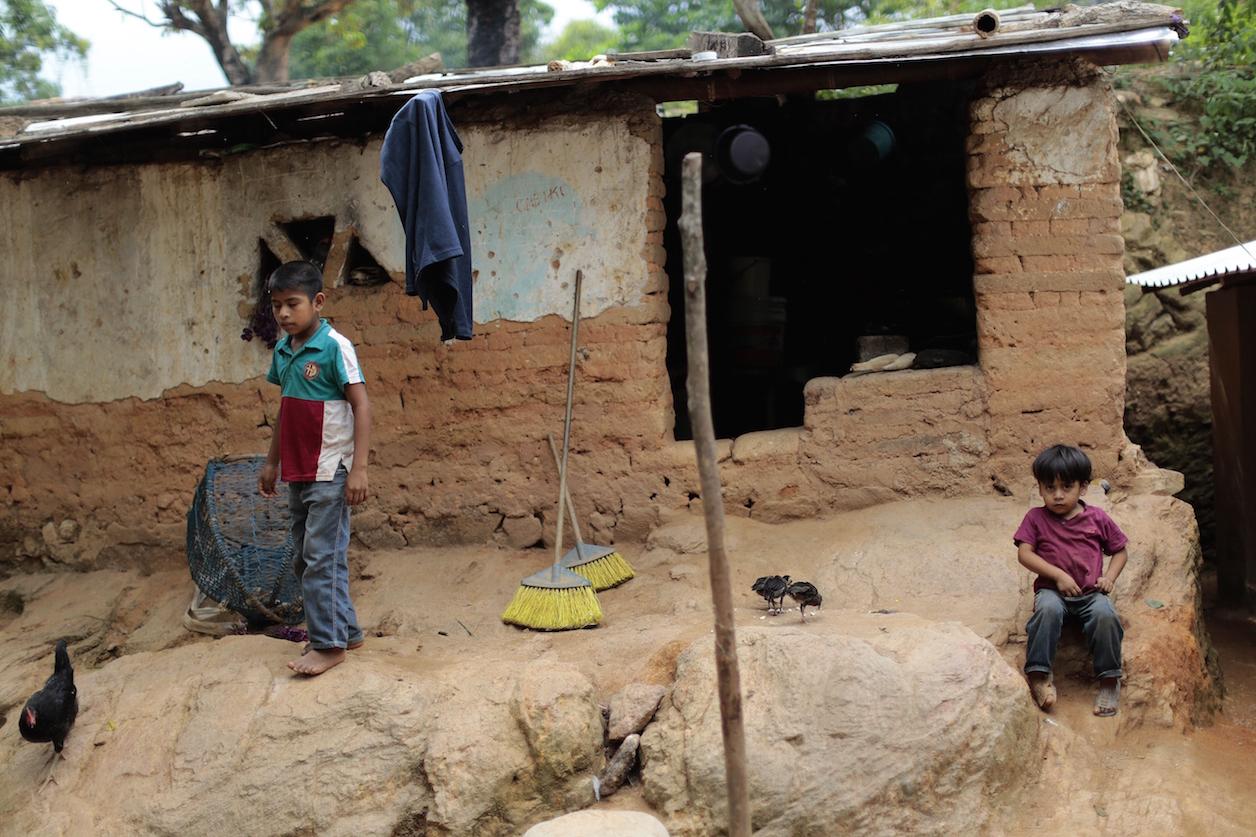The drug war isn’t the only battle Mexico is losing
Mexico's got more children like these poor kids seen outside their home in El Magueyito, Guerrero state.
MEXICO CITY — The spectacular escape of the world’s most wanted drug lord Joaquin “El Chapo” Guzman this month isn’t a good sign for the Mexican government’s war on drugs and organized crime.
But Mexico is failing to battle something else destroying the lives of millions of citizens: poverty.
President Enrique Peña Nieto launched a “crusade against hunger” after taking office in 2012, bringing food and new social welfare programs to 400 of the country’s poorest communities.
All that investment, and poverty has actually gotten worse, even while many of Mexico’s peers are lifting people out of poverty.
The rate of the country’s poor rose from 45.5 percent to 46.2 percent between 2012 and 2014, according to new data published by the Mexican government’s National Council for Social Development Policy Evaluation (CONEVAL).
Although, some families did apparently get a little relief: extreme poverty (the worst income and living conditions in the country) fell in that period very slightly, from 9.8 percent to 9.5 percent.
But overall, Mexico has 2 million more poor people than it had in 2012.
The council’s study — carried out every two years — took into account factors like people’s access to education, health, clean water and decent living conditions, as well as their income.
That’s not all. Mexico is the only country in Latin America to show “regressive tendencies” in poverty reduction, the Organization for Economic Cooperation and Development (OECD) reported this week. That means the country has seen no marked improvement in poverty conditions for the last 20 years due to slow economic growth yet steady unequal distribution of wealth.
Mexicans’ average income fell by 3.5 percent between 2012 and 2014.
Some critics argue the country’s poor population is actually much, much bigger than the government is letting on.
Julio Boltvinik, an economist who’s studied poverty here for more than 30 years, says his latest research shows that 100.7 million Mexicans are living in poverty right now. That’s almost twice CONEVAL’S 2014 tally of 55.3 million.
When asked why he thinks the government is losing its fight against poverty, he chuckled.
“There is no struggle against poverty. They don’t want to reduce poverty because that’s the only way that they can carry on winning elections,” he said.
Here’s what he means. Poor people are more susceptible to having their votes bought. The parties have often denied vote-buying accusations. But before June’s midterm elections, the federal government reportedly handed out free flat-screen TVs to voters. Generally, freebies are more modest and include bags of rice, corn, T-shirts or small amounts of cash.
“People are so poor that when political campaigns go to poor neighborhoods people just hold out their hands and say ‘What are you going to give me?’” Boltvinik says.
The Peña Nieto administration has not commented on the new poverty numbers.
